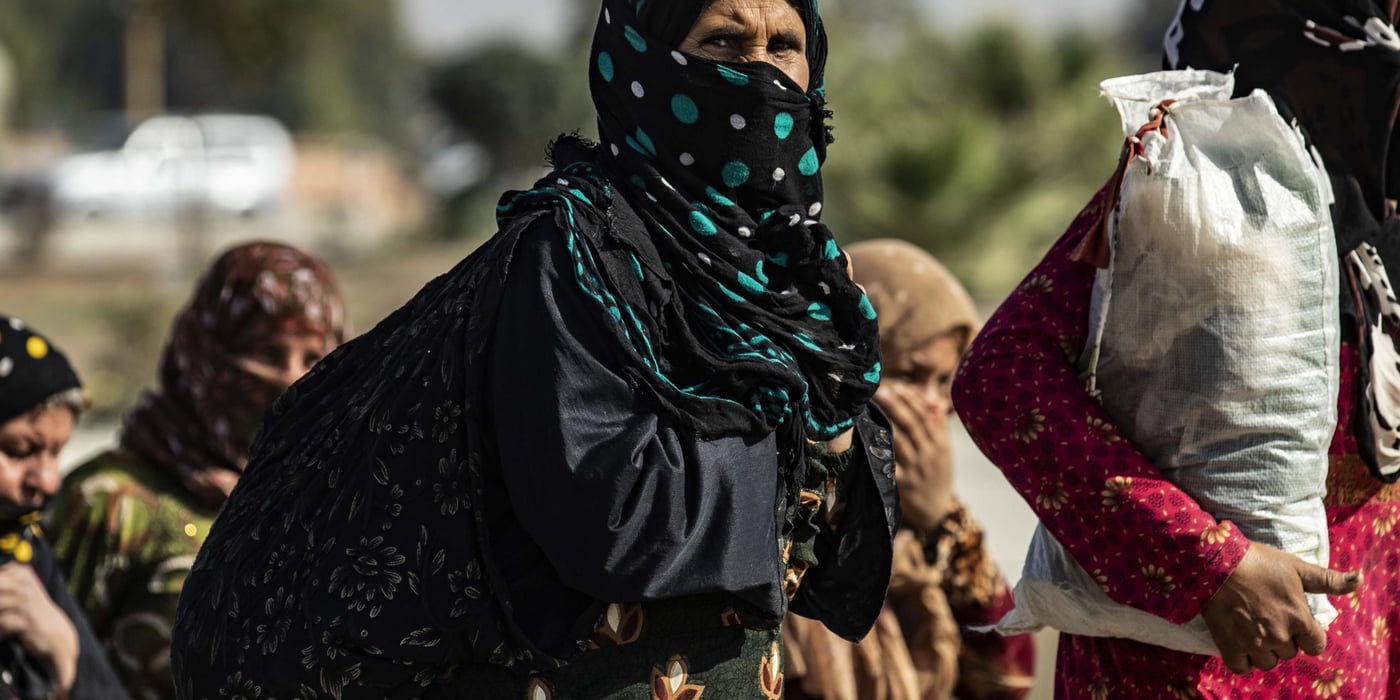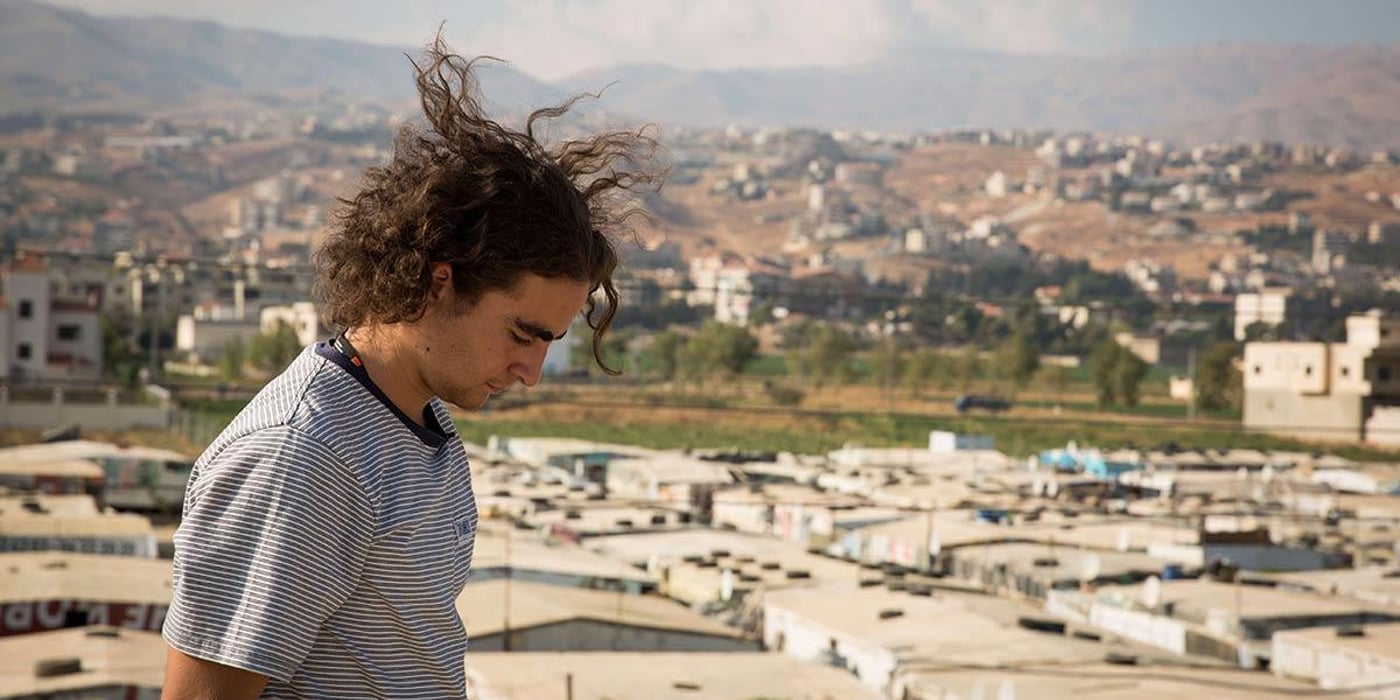
Samar har funnit trygghet i Libanon, men inte så mycket mer. Hennes liv har kastats om totalt. Hon har slutat studera juridik och arbetar för att försörja familjen. Om hon någon gång tar upp utbildningen igen, har hon få möjligheter att utöva sitt yrke i Libanon. Orsak: Hon är syrisk flykting.
Från krig till ett liv på paus
19-åriga Marlon finner inte riktigt orden, han är märkbart påverkad av det hon har berättat. Inte konstigt, när allt du vet om krig är vad du har sett på tv eller läst på internet och i böcker.
Precis som de allra flesta i Norge och Sverige.
Nu står hon framför honom - en som har känt kriget i kroppen. Samar har just berättat för Marlon om mannen hon älskade i Syrien. Han var på besök hos vänner, när huset de befann sig i blev bombat. Han dödades.
– Samar hade allt framför sig, hon skulle studera. Hon hade hittat den person hon verkligen älskade, och så blir allt helt motsatt. Den du älskar dör, blir dödad!
Marlon är uppenbart upprörd under inspelningen av den första episoden av serien Marlon's Journey till Instagram-TV.
I webbserien möter han ungdomar på flykt från några av världens största kriser.
Första resan gick till Libanon. Landet är något större än Östergötland och har, sedan Syrienkrisen började för sju år sedan, tagit emot cirka 1,5 miljoner syriska flyktingar.
”Hon hade allt framför sig, hon skulle studera. Hon hade hittat den person hon verkligen älskade, och så blir allt helt motsatt. Den du älskar dör, blir dödad!”Marlon Langeland
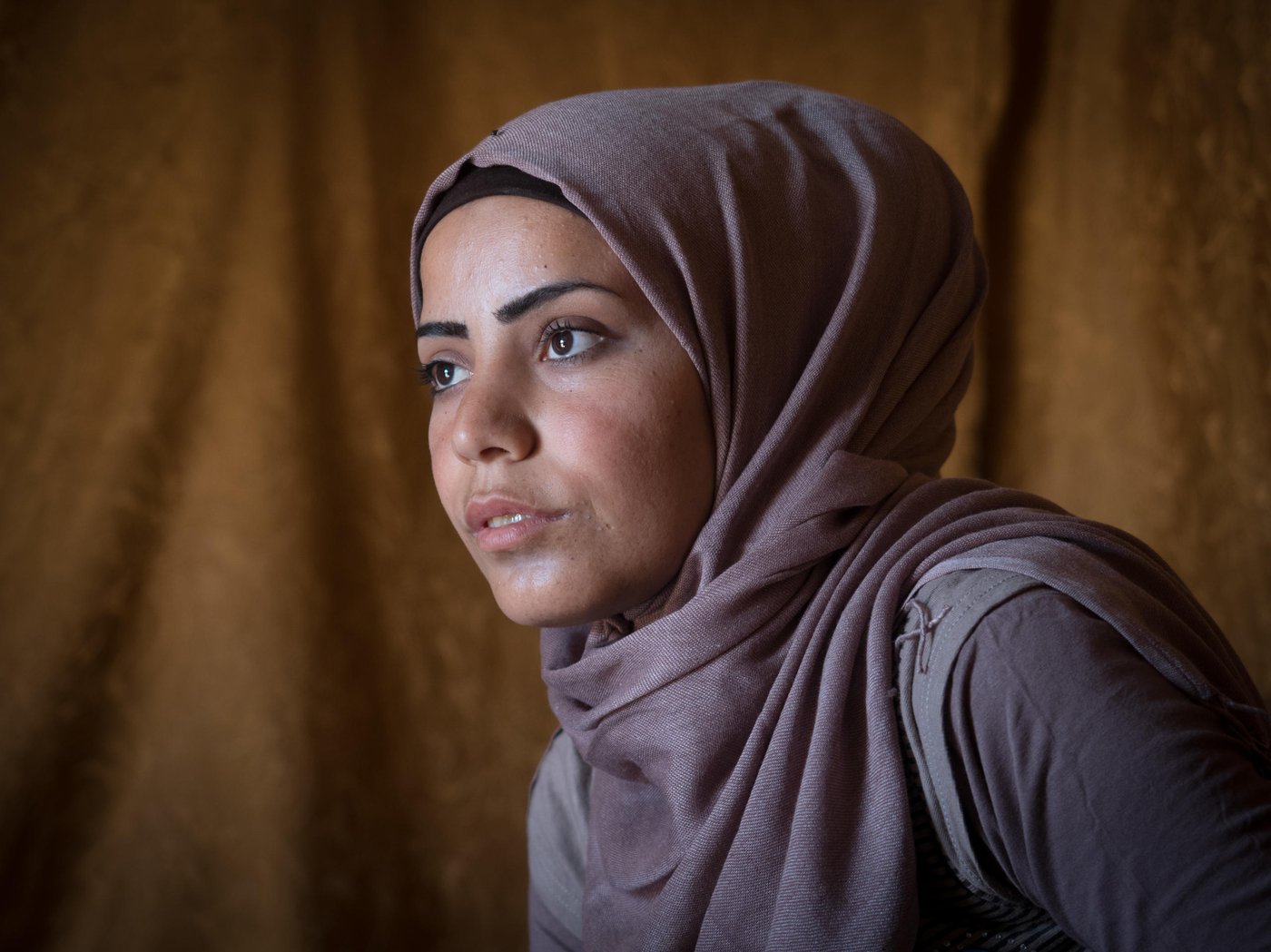
Under press: 1 av 4 är flyktingar
Idag är en fjärdedel av befolkningen i landet flyktingar. Trots att många känner sig trygga i Libanon, är livet fortfarande på paus. Så många som 74 procent av syriska flyktingar över 15 år i Libanon saknar papper om uppehållstillstånd - det är för dyrt. Det betyder att de har få möjligheter att fortsätta sin utbildning, få ett jobb och starta ett nytt, normalt liv i Libanon.
– Även om du har utbildning är det svårt att få jobb i Libanon om du är syrisk flykting. De har få möjligheter att arbeta och kan bara ta arbete inom jordbruk, bygg eller andra säsongsarbeten. De som saknar papper på uppehållstillstånd har begränsad tillgång till sjukvård och utbildning och de kan inte röra sig fritt, berättar Racha El Daoi, kommunikationsrådgivare för NRC i Libanon.
Landet är under enorm press för att täcka humanitära behov såsom utbildning, tak över huvudet och mat till alla dem som har sökt sin tillflykt här. Nu lever hela 76 procent av de syriska flyktingarna under fattigdomsgränsen.
Läs mer om flyktingsituationen i Libanon och NRC:s arbete i landet här.
– Situationen för flyktingar i Libanon blir nu allt värre, sju år in i den syriska flyktingkrisen. Därför är det helt avgörande med internationellt stöd och hjälp, för att möta landets humanitära behov, säger Racha El Daoi.
Men Samar vägrar låta hennes liv stanna upp, för att hon är på flykt i ett främmande land. Det är hon skyldig den mannen hon älskade, säger hon. Han hade önskat att hon kämpade vidare för att göra drömmarna till verklighet.
– Hon är ett fantastiskt exempel på en stark person. Hon har så många odds emot sig, men fortsätter att jobba, kämpa och se dem hon älskar, säger Marlon.
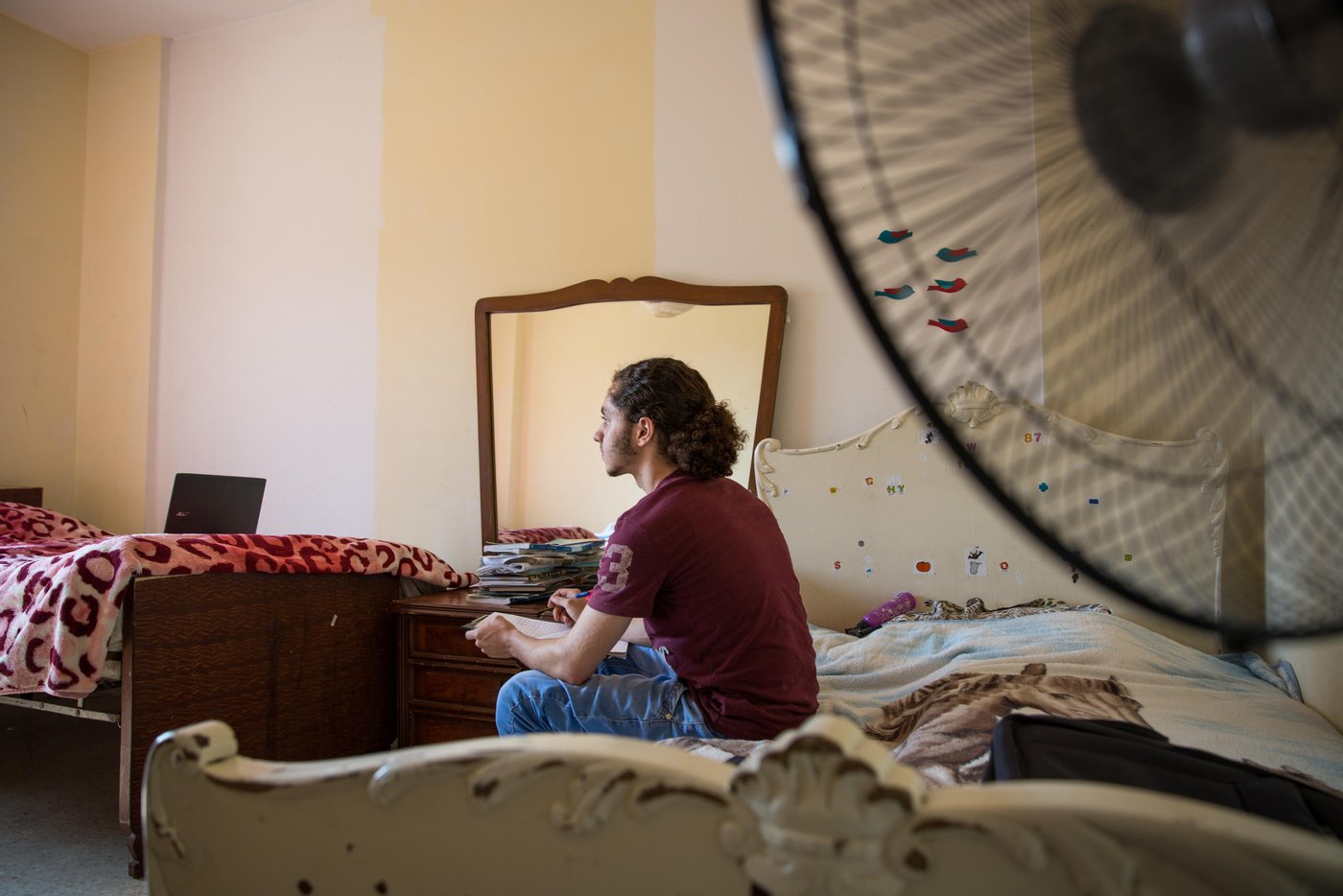
Drömmen som sprack
Några dagar tidigare, på planet till Libanon, talar Marlon om pappan som kom till Norge som politisk flykting från Chile. Han vill förstå sin familjehistoria bättre, veta mer om innehållet som ordet flykting faktiskt är fylld med. Är det så som han sett det på TV? Hur länge är man på flykt? Hur bor man?
I Libanon förstår han att svaren är lika många som antalet flyktingar i världen. Medan Samar bodde i ett inofficiellt läger en timme utanför Beirut, möter Marlon Osama i ett anonymt hyreshus i den libanesiska huvudstaden.
De har båda stort, lockigt, brunt hår, de är lika långa och går med samma vaggande rytm i stegen. Marlon skrattar och kommenterar likheten.
Osama bor med nio andra syriska flyktingar i den lilla lägenheten. De har lyckats skapa en gemenskap, går i skolan och lagar mat ihop. De håller varandra uppe.
– Vi måste hjälpa varandra, studera, bli bättre, säger han.
Men för tillfället är framtidsutsikterna inte ljusa. Osama och familjen har precis fått avslag på ansökan om uppehåll i ett tredjeland - ett "nej" till drömmen om en trygg framtid, en vardag med jobb, studier och möjlighet att leva som vanligt.
Osama och familjen är en del av en dyster statistik. Få personer kommer genom nålsögat i kvotflyktingsystemet, även om lösningen är det enda lagliga och säkra alternativet för att få stanna i ett tredjeland.
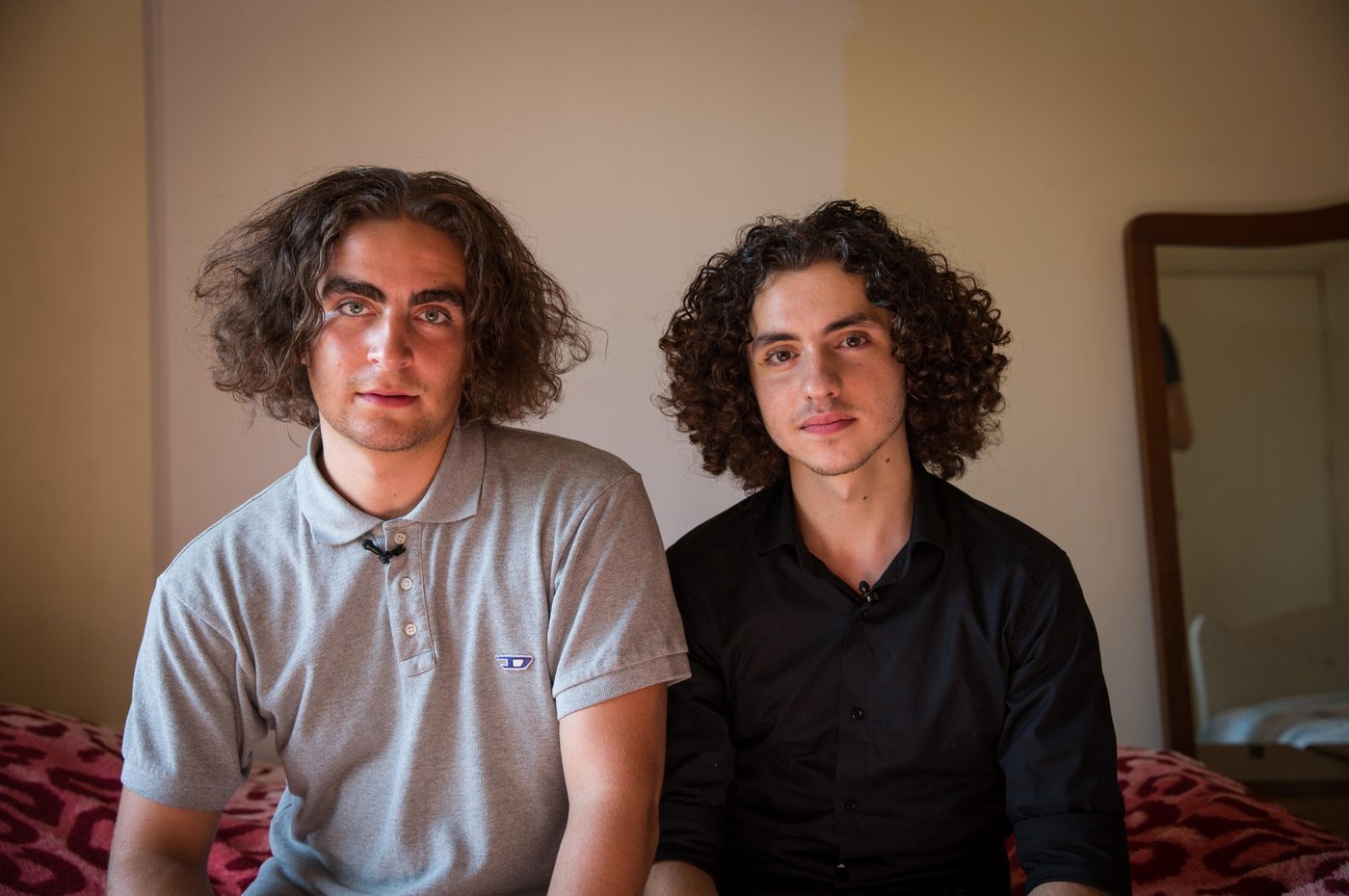
”Du måste göra något för att överleva”
Mot slutet av besöket i Libanon har Marlon svårt att sortera alla intryck. Det liknar inte något som han har sett eller hört om förut. Samtidigt är det upplyftande att se att ungdomarna han möter har en viktig sak gemensamt:
– Oavsett var du är, måste du göra något för att överleva eller gå vidare med ditt liv. Det är precis vad jag sett här. Människor som arbetar med det de har och som vägrar att ge upp.
Racha El Daoi menar att det är viktigt och inspirerande att unga människor som Marlon använder sin tid till att skapa uppmärksamhet kring en särskilt utsatt grupp, som ungdomar på flykt.
– Att Marlon gör det här, gör det möjligt för oss att skapa medvetenhet om situationen för flyktingar. Vi kan öka kunskapen om Syrienkrisen och hur den påverkar ungdomar. Särskilt eftersom syriska ungdomar brukade ha ett ganska liknande liv som norska ungdomar. Ett liv med drömmar, ambitioner, hopp och planer för framtiden. Skillnaden är att krig har tvingat dem på flykt.



